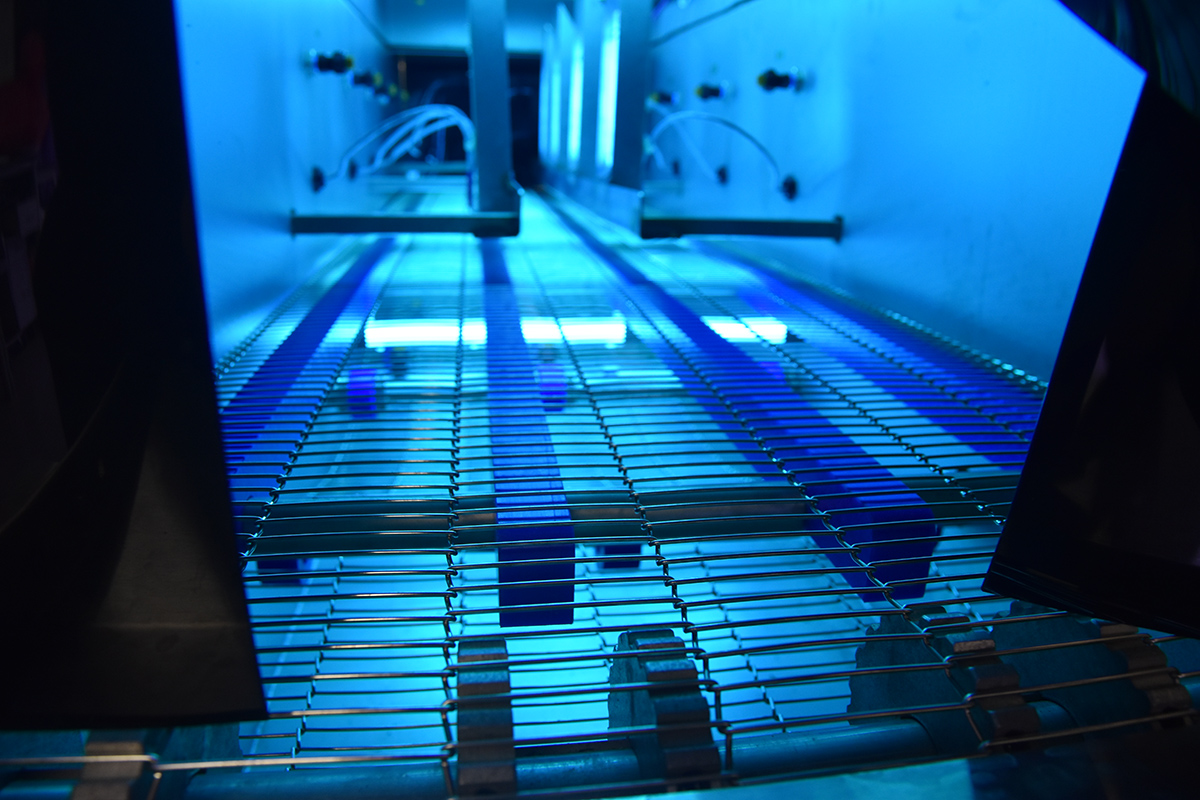New cleaning UV light prototype provides growers with alternative sanitizing options
Wednesday, Dec. 13, 2023 | Written by Beth Jones

OLATHE — Kansas State University Olathe recently welcomed a cutting-edge disinfection tunnel prototype employing UV-C technology thanks to funding from the United States Department of Agriculture and Organic Research and Education Initiative (OREI).
Valentina Trinetta, Ph.D., is the principal investigator on this grant, while Manreet Bhullar, Ph.D., and Londa Nwadike, Ph.D., are each co-principal investigators. Bret Lanz, commercialization director, and Joshua Affholder, engineer at Technology Development Institute, provided key guidance on designing and building the UV prototype.
This state-of-the-art system integrates a continuous UV-C light treatment into a tunnel framework, complete with a commercial conveyor for streamlined sanitization. Designed to decontaminate various food contact surfaces, such as harvest bins and dryer rollers, this prototype promises 360° exposure to UV-C light and ensures thorough treatment of all surfaces and equipment for maximum microbial reduction.
The tunnel's unique design incorporates strategically placed UV-C lamp arrays and sanitizer nozzles to disinfect hard-to-reach areas. One of the biggest goals is to speed up commercial sanitizing and processing in an industrial setting. Currently, there are limited options for disinfecting or treating contact surfaces, including plastic crates. This tunnel is designed specifically to help with cleaning and sanitizing those food contact surfaces by enabling them to pass through on the conveyor belt.
“The speed of the conveyor belt will help us decide on the treatment, as well as what UV treatment dose is delivered,” explained Manreet Bhullar, Ph.D. “The ultimate goal is to provide growers with a mathematical tool that they can use to define at what speed and flow rate they can use this device to meet the needs of their operation, making it an ideal option for sanitization.”
The system is designed with worker safety in mind. It includes stainless steel and safety curtains at the inlet and outlet of the tunnel for optical shielding to prevent any direct UV-C exposure to operators.
The tunnel also addresses two important considerations: efficiency and adaptability. Its functionality addresses a range of processing needs through adjustable UV-C fluency and conveyor speeds tailored to deliver precise UV doses for effective sanitization, while the system's effectiveness is theoretical and backed by rigorous validation using high-resolution portable spectrometry and laboratory research studies.
A comprehensive budgeting analysis will pave the way for economic feasibility in commercial settings, complementing this technological breakthrough. A mathematical tool will be developed to offer potential adopters a detailed projection of the initial capital and operational expenditures, aligning the innovation with the financial realities of organic farming operations. The disinfection tunnel prototype is a testament to progress in food safety and sustainability, marking a significant leap forward in organic produce processing.
To learn more about Bhullar’s research, visit bhullarlab.com.